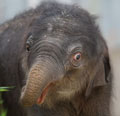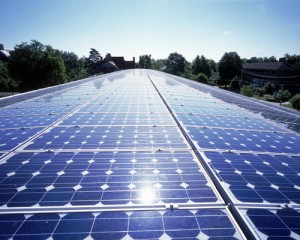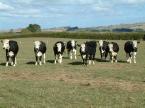
I was pleased to catch sight of the first two words of the headline on the Eco Issues page of the Waikato Times this week — “The Arctic”, it said, and I assumed thankfully that they were going to focus on the alarming developments there. And so they were, but not in the sense I presumed, for the headline continued “– site for an icy cold war?” The article was all about the competition for seabed resources as the ice diminishes. Nothing at all about the threat to the global climate. The omission was compounded by another headline for an inset panel: “A frozen wasteland no more”. In other words, with the melting of the ice the Arctic is becoming useful.
Incidentally the word wasteland reminded of me how a few years ago the chairman of a local trust, a subsequent national president of the ACT party, opposed making a grant for wetlands restoration. “Wetlands are wastelands,” he said.
The terrible irony of referring to the Arctic as a wasteland is presumably lost on many Waikato Times readers. And not too many journalists are likely to question the focus on resource extraction. We can expect a plethora of journalistic analysis of the international tensions over the rights to natural resources from the Arctic as it moves inexorably to losing its sea ice. That appears much more likely to be the substance of reportage and discussion than the consequences for global warming. Political leaders will come alive on the issue. Indeed they already have. Vladimir Putin hosted an international conference last month on the future of the Arctic, and although he claimed development would be sensitive to the environment he also made it clear that he’s no believer in anthropogenic global warming, as reported in the Energy Tribune. Expect much closer political attention to the exploitation of newly accessible mineral resources than to the implications for global warming.
It is obvious to anyone who follows climate science that a frozen Arctic is pretty well essential to the climate in which human civilisation has developed. The loss of Arctic sea ice and a diminishing Greenland ice sheet carry between them incalculable consequences for change which it is by no means clear we can manage. That’s why apprehension is the most rational human response to what we are seeing, accompanied by a determination to stop making it even worse. But how much longer do we have to wait for apprehension to be manifest on a wider scale than is so far apparent? Putin’s no help:
“Is it changing because of human influence or because of unavoidable changes in the planet’s development that humankind cannot prevent? Is it really disastrous for the planet? I don’t want to say that we should give up our efforts to combat global warming, but maybe it is happening regardless of our influence? It is most likely so.”
Nor is there any sign of awareness from the numerous Republican political candidates in the US who have become bogged in a mire of unreason as they variously deny the science altogether, or treat it as highly uncertain, or downplay it in favour of fossil fuel energy. It’s almost unbelievable to see the list of gubernatorial candidates, for instance, whose stances have been reported by the Wonk Room. There are many other articles in the Wonk Room climate section, by the way, reporting the sad story of a major political party’s descent into denial of the most pressing issue of our time.
Back here in Hamilton I shall write a letter to the editor pointing out that far from a wasteland the frozen Arctic is vital to life as we have known it since civilisation began. I shall deplore the continuing failure of political leadership to come to terms with the reality of climate science, and urge readers to be concerned for their children and grandchildren in the world we are creating. A year ago I could have said this in a column, but the paper’s anxiety about ‘balance’ put an end to that. A letter will be better than nothing.
[I could be the ticket man at Fulham Broadway station…]
Like this:
Like Loading...
 Poor old Chris. The discount Viscount has not been having a happy time with the New Zealand press, as my Sciblogs colleague Peter Griffin noted in Monckton’s nightmare week in New Zealand last week. According to the Waikato TImes, he may even be about to hang up his sceptic spurs ((Hurrah!)). He was given a much more gentle ride by the SunLive news web site in Tauranga, who were pleased to give him a chance to continue to misrepresent and misdirect in a video interview posted yesterday. As ever, I watched it so you wouldn’t have to…
Poor old Chris. The discount Viscount has not been having a happy time with the New Zealand press, as my Sciblogs colleague Peter Griffin noted in Monckton’s nightmare week in New Zealand last week. According to the Waikato TImes, he may even be about to hang up his sceptic spurs ((Hurrah!)). He was given a much more gentle ride by the SunLive news web site in Tauranga, who were pleased to give him a chance to continue to misrepresent and misdirect in a video interview posted yesterday. As ever, I watched it so you wouldn’t have to…
 A pleasant surprise this morning to see across the front page of the Waikato Times the headline “
A pleasant surprise this morning to see across the front page of the Waikato Times the headline “ It is a truth
It is a truth 
 Waikato farmers who deny human-caused climate change will be cheered by the support lent by a real live scientist in an interview prominently reported in the latest issue of the Waikato Farmer, a monthly feature supplement of the Waikato Times. Admittedly not a climate scientist – a soil scientist actually – but one who has done much reading on the subject, including Nigel Lawson’s A Cool Look At Global Warming. Thus fortified he is able to substantiate the opinions of the 99 percent of the farmers consulting him who he says think global warming is a hoax and the Emissions Trading Scheme unnecessary.
Waikato farmers who deny human-caused climate change will be cheered by the support lent by a real live scientist in an interview prominently reported in the latest issue of the Waikato Farmer, a monthly feature supplement of the Waikato Times. Admittedly not a climate scientist – a soil scientist actually – but one who has done much reading on the subject, including Nigel Lawson’s A Cool Look At Global Warming. Thus fortified he is able to substantiate the opinions of the 99 percent of the farmers consulting him who he says think global warming is a hoax and the Emissions Trading Scheme unnecessary.